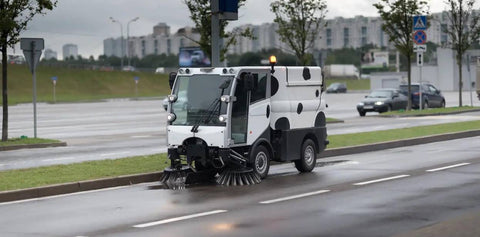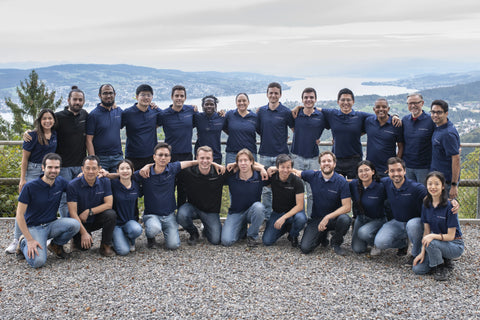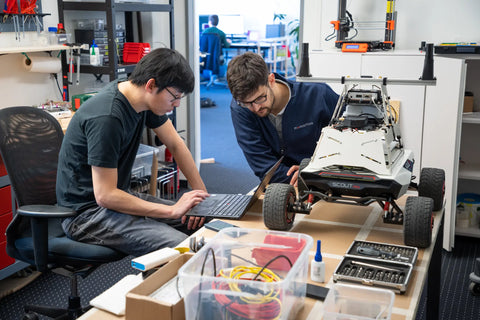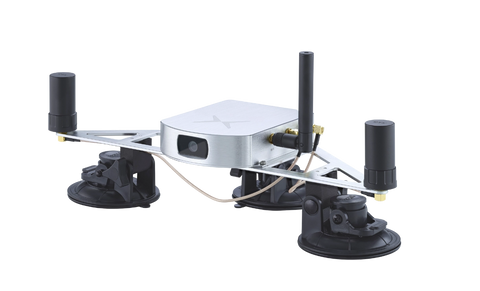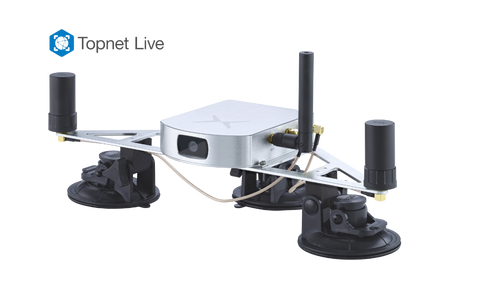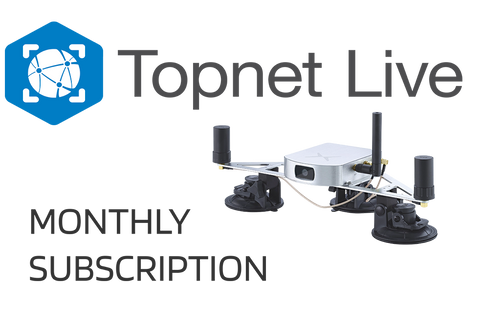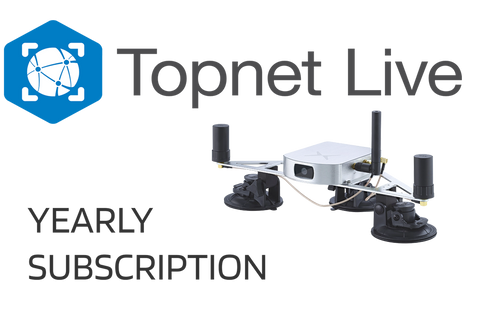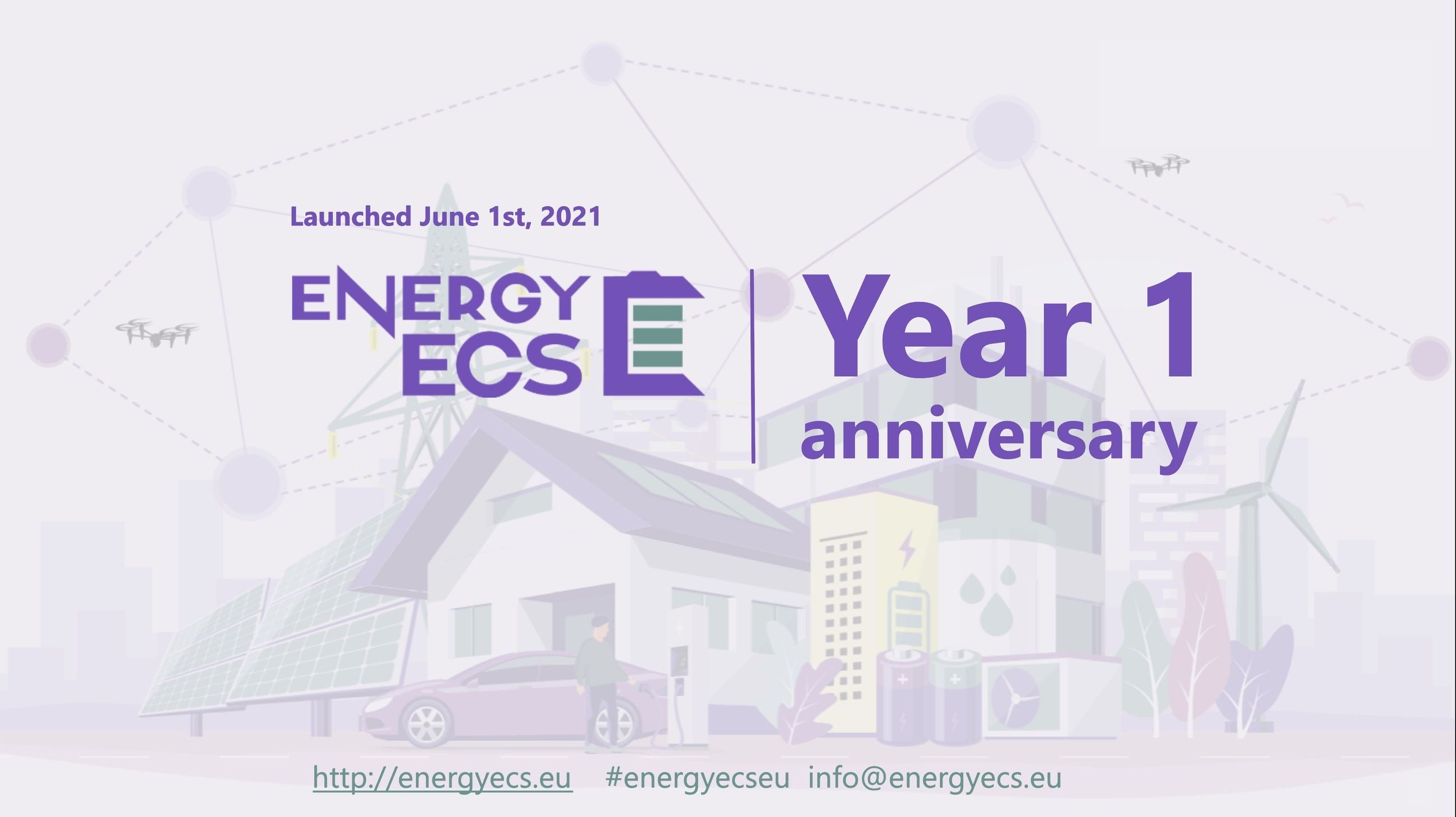This month marks the year ONE milestone of the Energy ECS project.

Since project kick-off in June 2021, the past year has proved to be both fruitful and challenging, working with 30 partners of technology-related industries from 8 different European countries. All partners managed to collaborate closely despite the global challenges such as the pandemic and supply chain issues.
In the coming 2 years, the project team will continue to work together to explore solutions to develop smart and secure energy solutions for future mobility and the green-energy transition.
The advancement of e-mobility is a key part of the green energy transition. Together with its direct role in reducing emissions, the adoption of e-mobility also has a crucial indirect role as a grid stability element. E-mobility accelerates the transition to wind and solar energy production, and thus reduces the use of fossil fuels in the energy mix.
Fixposition is very excited to be part of Use Case 1 and 6 of the Energy ECS project. While also working alongside many other talented and exciting companies, we will be able to further develop our technology for two specific applications:
Use Case 1 of the project named “Drone Zones” is about creating an autonomous drone ecosystem by deploying drones in cities which will be able to dock to photovoltaic powered charging stations in the city and on electrical buses to hitch a ride while charging their batteries. The precise approach and landing of the drones to these charging stations is a key capability for this system. Fixposition is developing and customizing its Vision-RTK 2 positioning sensor for the use on the drones and buses in this scenario.
In Use Case 6 of the project “Autonomous Driving of EV to Charging Stations” EV’s are enabled to autonomously navigate to their charging stations in a bus depot. Fixposition is developing its Vision-RTK 2 technology to be a part of the localization pipeline guiding EVs on a cm-level.
participated in Use Case 1 meeting in Reykjavik, Iceland in April 2022
A quick recap of the Energy ECS project:
Launched in June 2021, it is an extensive 3-year project with a total of 30 partners from eight European countries and an overall budget of 33 M€. It will pave the way for an emerging new European business and technology ecosystem aimed at tackling various energy related challenges for the future of mobility. The project accelerates Europe’s decarbonization goals for 2050.
It is co-financed via the ECSEL Joint Undertaking of the EU Horizon 2020, national funding agencies of the participating countries, and the consortium partners. The project consortium consists of 16 small and mid-sized enterprises, eight large enterprises and six research and technology organizations from Finland, Austria, Germany, Ireland, Iceland, Italy, Sweden, and Switzerland. The consortium brings together all the players needed to realize the field testable solutions.
The Energy ECS project will build on six use cases that represent different angles on future mobility and energy: enablers of new logistics modes, energy independent intermodal transport, charging technologies and opportunities, grid stability responding to bi-directional charging, and enablers of safe autonomous driving. By 2030, the new technologies developed in Energy ECS are expected to generate turnover for the participating companies. In addition, the project is aimed at enabling increased market share and market leadership for the 30 partners. The other expected impacts include dozens of new collaborations, hundreds of new jobs, and additional investments.
Consortium project partners (in alphabetical order):
aixACCT Systems, AixControl, ams OSRAM, Applied Materials Italia, Aurora Powertrains, CISC Semiconductor, CSEM, DigitalTwin Technology, e-bility, Fraunhofer IMS, Fraunhofer IZM, Fixposition, Consorzio Nazionale Interuniversitario per la Nanoelettronica (IUNET, with Linked third parties UniBo, UniPg, PoliTO, UniUd), Lapland University of Applied Sciences, Luna Geber Engineering, Merus Power, Minima Processor, Net Feasa Limited, Nokian Tyres, RISE, RoTechnology, Swiss Airtainer, Scantinel Photonics, Strætó, Svarmi, TietoEVRY Sweden, TyndallNational Institute, Unikie, Xenergic.
More information: www.energyecs.eu


